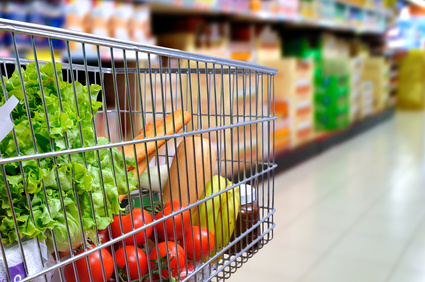Why An Organic Diet Is A Healthy Investment, According To Nutritionists

- admin
- October 3, 2017
- Diet, Integrative, Recent News
- No responses
Most parents are aware that organic foods contribute to a healthy and wholesome diet for their growing children, but making the switch comes with some questions. Will going organic be significantly more expensive? What are the best items on the weekly grocery list to switch to organic versions? And if your grocery run has become so automatic that the thought of switching it up causes you to crash your cart, don’t worry, we’ve got you covered!
We teamed up with the BuyPower Card from Capital One to help you make simple and healthy choices for the whole family, with expert-approved advice on how to incorporate organic options into your diet. It’s all about finding a healthy balance that works for your lifestyle and your wallet!
The Benefits Of Boosting Your Phyto Power
The long term health benefits of an organic diet far outweigh the short-term costs. Vanessa Carr, a Registered Dietitian Nutritionist (RDN) at Kate Farms, notes that organic foods have been shown to contain higher levels of important vitamins and phytonutrients, including magnesium, iron, vitamin C, and phenols. Each of these nutrients plays a vital role in a child’s development. Increasing magnesium levels in children who are deficient may improve anxiety and provide other mood-based benefits, says Carr. And the antioxidants found in organic foods can help prevent chronic inflammation. Free of pesticide residues and artificial colors and flavors, children who are exposed to an organic diet will be less likely to exhibit food sensitivities and negative food reactions as they get older. Eating organic may have an upfront cost, but it’s a great way to teach your kids that good health is a lifelong investment well worth making.
Budget Without Sacrificing Quality
Carr also assures parents on a budget that eating organic isn’t an all-or-nothing proposition. “For most, it is difficult to buy 100% organic produce and food,” she notes. Instead, she recommends educating yourself on which products to focus on so that you use your grocery budget where it can have the biggest impact.
Carr recommends that parents consult consumer advocacy groups for additional details on fruits and vegetables with the highest pesticide residues, topped by common offenders like strawberries, spinach, nectarines, and apples. Most groups give a thumbs up to produce that is less likely to be contaminated with chemicals, such as corn and avocados. “To save money buying organic, you can opt to buy only those foods on the Dirty Dozen list as organic and by the remainder of your produce non-organic,” says Carr.
Parents can also keep an eye out for when favorite fruits and veggies are in-season and stock up while prices are low. Canning or freezing in-season produce can then help offset the costs in the off-season when prices go up.
And consider checking out nearby farms, which may offer seasonal CSA shares, ensuring you a bounty of healthy organic produce while also supporting your local farmers! In addition to the many health benefits of farm-fresh produce, shopping straight from the source is a great way to teach your children about where their food really comes from.
The Power of DIY
Parents can also encourage healthy snacking by preparing simple organic treats like trail mix for their kids to reach for instead of a bag of chips. Rene Ficek, an RDN at Seattle Sutton’s Healthy Eating recommends that parents supplement their supermarket purchases with homemade natural snacks, which will cut down on the cost of buying individually packaged items. And for parents who don’t have time to cook as much as they might like? “Simply enjoy unprocessed snacks such as nuts, seeds, and fruit,” she suggests.
And Ficek reminds parents that just because a snack is labeled organic doesn’t mean it’s the most nutritious choice. “The term organic doesn’t always mean healthy, especially if a lot of sugar or fat is added during the processing stage,” says Ficek. This is another great reason to DIY your own snack packs!
Green thumbs can take the DIY approach one step further by planting your own fruits, veggies and herbs. Starting your own produce garden can be a fun family activity that teaches your kids about responsibility while also providing a backyard bounty for salads, stir frys, and more. With seeds, soil and a bit of research on what plants would work best for your climate, you can be growing your own organic produce for next to nothing!
A Positive Return on Investment
Our daily food choices have a long-term impact on our health and happiness. Teaching your kids to make healthy choices at mealtime will give them the long-term skills that they need to nourish their bodies and their brains. And with a little prep work, incorporating organic options into your family’s diet can be affordable and rewarding. And did we mention, delicious?!
A healthy diet and lifestyle is always a smart investment in your family’s well being. The BuyPower Card from Capital One makes achieving a healthy financial lifestyle easier than ever by rewarding users with points on every purchase . Earnings are redeemable towards a new Chevrolet, Buick, GMC or Cadillac vehicle, so that every time you grocery shop, you’re not only nourishing your family, but also moving closer to your next vehicle! Learn more about how the BuyPower Card can enhance your healthy lifestyle.
